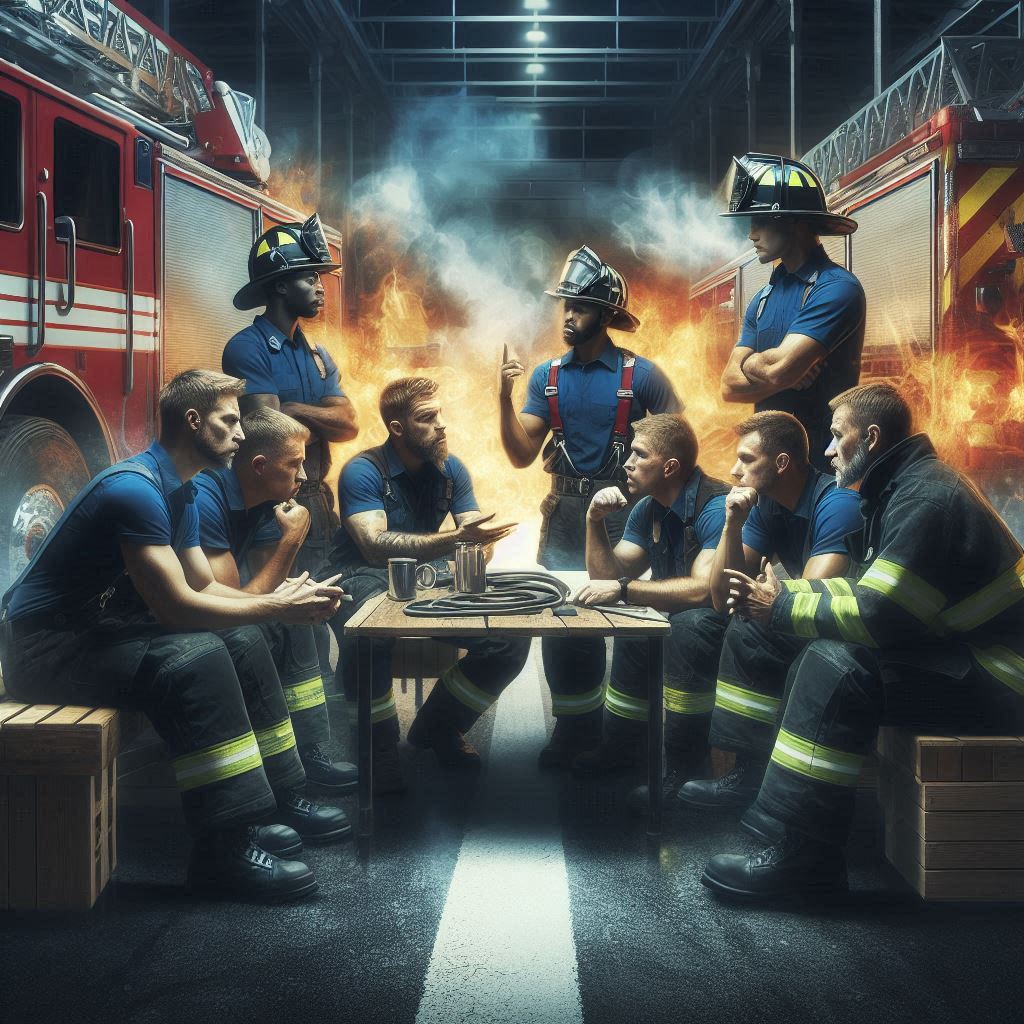
The Impact of DEI in the Fire Service: When Inclusion Comes at a Cost
Share
The Impact of DEI in the Fire Service: When Inclusion Comes at a Cost
The fire service has long been built on tradition, discipline, and a relentless commitment to excellence. Firefighters are expected to be physically capable, mentally resilient, and highly skilled—because in this profession, seconds matter, and mistakes cost lives.
In recent years, Diversity, Equity, and Inclusion (DEI) initiatives have been introduced into fire departments across the country, aiming to create a more diverse and representative workforce. While the intentions behind DEI may be noble, many firefighters and department leaders have raised concerns that these policies have weakened hiring standards, created division, and prioritized identity over merit.
This blog post explores the unintended consequences of DEI in the fire service, examining how forced diversity efforts may be hurting recruitment, morale, and operational effectiveness.
1. Lowering Hiring Standards: When Diversity Trumps Competence
Firefighting is a physically demanding profession. Every firefighter must be able to carry heavy equipment, navigate dangerous environments, and perform life-saving rescues under extreme conditions.
Yet, some departments have adjusted hiring practices to prioritize diversity, sometimes lowering physical and skill-based requirements to accommodate a broader applicant pool.
🚨 Concerns Raised:
-
Physical standards have been reduced in some departments to increase female and minority representation, leading to concerns that some recruits may not be physically capable of handling the job.
-
Merit-based hiring has taken a backseat to diversity quotas, meaning highly qualified candidates may be overlooked in favor of meeting demographic targets.
-
Operational effectiveness is at risk when firefighters are selected based on identity rather than skill, strength, and readiness.
✅ What Should Be Done Instead:
-
Maintain rigorous hiring standards to ensure every firefighter is physically and mentally prepared for the job.
-
Focus on mentorship and outreach rather than lowering qualifications.
-
Ensure that diversity efforts do not compromise safety or performance expectations.
Firefighters should be hired because they are the best candidates for the job—not because they fit a demographic profile.
2. Division & Morale Issues in Firehouses
Fire departments thrive on camaraderie, trust, and teamwork. Firefighters rely on each other in life-or-death situations, knowing that every member of the crew must be capable, reliable, and focused.
However, some firefighters have reported that DEI initiatives have unintentionally created division within their teams.
🚨 Concerns Raised:
-
Mandatory diversity training has led to resentment among firefighters who feel they are being unfairly labeled.
-
Identity politics have infiltrated firehouses, creating tension between firefighters rather than fostering unity.
-
Some firefighters feel overlooked for promotions because departments are prioritizing diversity over experience and skill.
✅ What Should Be Done Instead:
-
Shift the focus of DEI training toward team-building and shared values rather than identity-based discussions.
-
Encourage open conversations about diversity without forcing rigid narratives.
-
Ensure that all firefighters feel valued for their skills and contributions, not just their demographic background.
Firehouses should be built on trust, respect, and shared purpose—not division and resentment.
3. The Risk of Political Influence in Fire Departments
Firefighters are public servants, and their primary mission is to protect lives and property. However, some departments have faced pressure to align with political narratives surrounding DEI, leading to concerns about external influence affecting department operations.
🚨 Concerns Raised:
-
Some firefighters feel that DEI policies are driven by political agendas rather than practical improvements.
-
Departments may face backlash from both supporters and critics of DEI, creating unnecessary tension.
-
Firefighters worry that political debates could distract from the core mission of emergency response.
✅ What Should Be Done Instead:
-
Keep DEI initiatives focused on operational effectiveness rather than political messaging.
-
Ensure that diversity efforts enhance teamwork and performance rather than create division.
-
Maintain neutrality in department policies, ensuring that firefighters can focus on their mission without political distractions.
Firefighters should be focused on saving lives—not navigating political debates.
4. The Struggle for Merit-Based Promotions
DEI policies have also influenced promotion processes, with some departments prioritizing diversity in leadership roles. While representation is important, some firefighters argue that experience and qualifications should remain the primary factors in leadership selection.
🚨 Concerns Raised:
-
Some firefighters feel that promotions are influenced by diversity quotas rather than merit.
-
Departments may fast-track certain candidates based on demographic factors rather than leadership ability.
-
Firefighters worry that less experienced leaders may struggle with decision-making in high-pressure situations.
✅ What Should Be Done Instead:
-
Ensure that leadership promotions remain merit-based, with diversity as a secondary consideration rather than the primary factor.
-
Provide equal access to leadership training for all firefighters, ensuring that promotions are earned through skill and experience.
-
Encourage mentorship programs that help diverse candidates develop leadership skills naturally rather than through forced initiatives.
Leadership in the fire service should be earned through skill, experience, and dedication—not identity-based selection.
Final Thoughts: Finding Balance in DEI Efforts
Diversity, Equity, and Inclusion should not be about lowering standards or creating division—it should be about ensuring equal opportunities while maintaining excellence in the fire service.
The best approach to DEI in firefighting is one that: ✅ Respects tradition and operational effectiveness while embracing inclusivity. ✅ Prioritizes merit-based hiring and promotions while ensuring fair opportunities. ✅ Strengthens teamwork and unity rather than creating division.
Firefighters must trust each other, work together, and focus on their shared mission—protecting lives and serving their communities. DEI efforts should enhance that mission, not hinder it.